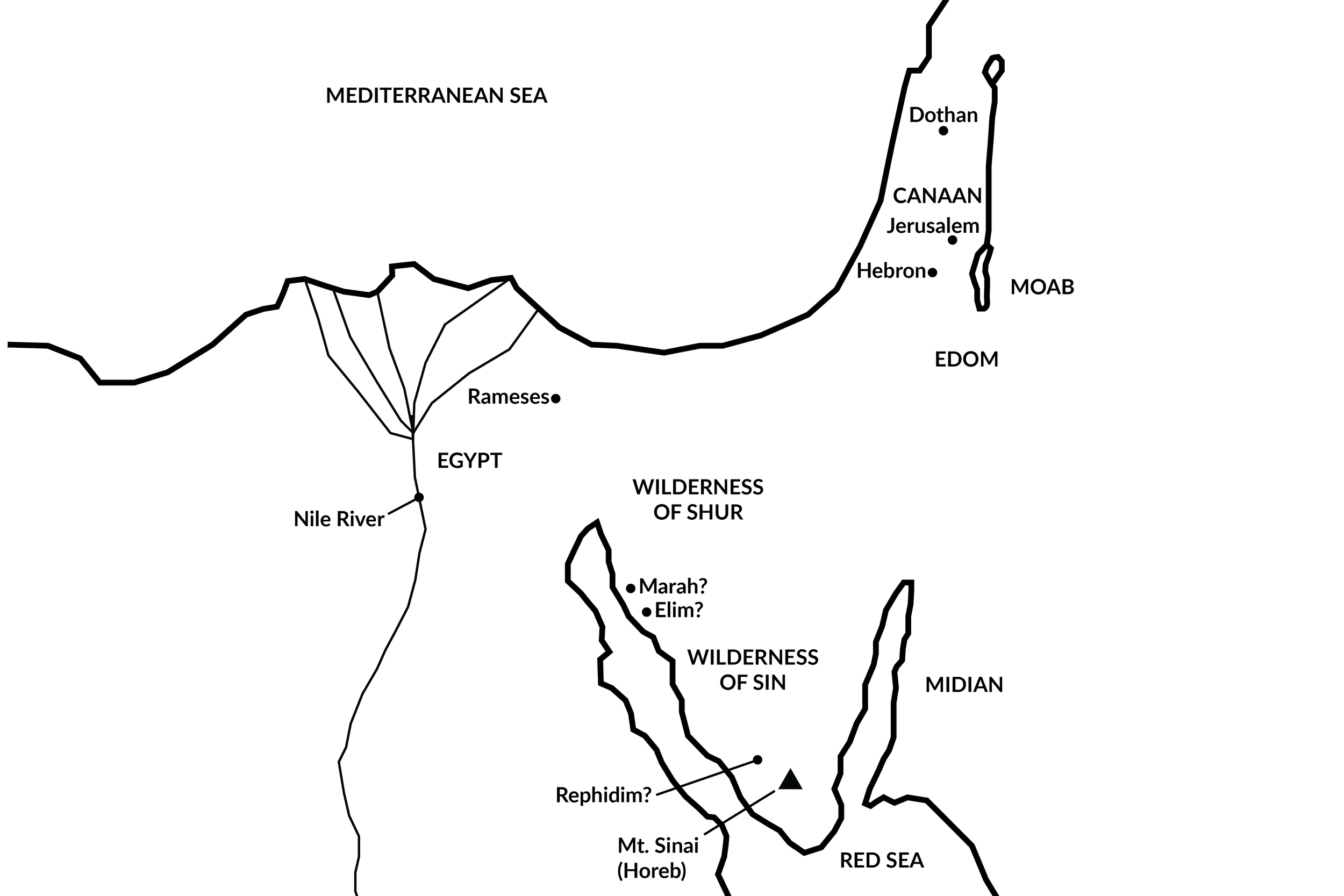Exodus 17 Summary: A Concise Overview in 5 Minutes
Exodus 17 Summary - A Quick Overview
WHEN:
According to Exodus 7:7, Moses was 80 years old when he stood before Pharaoh as the representative of God (1491 B.C.).
God delivered the Israelites from slavery in approximately 1491 B.C.
The events in Exodus 16 occurred 1 month after the Exodus (16:1). The events in Exodus 17 followed shortly after.
CHARACTERS:
Israelites (Hebrews) – They were the descendants of Abraham, Isaac, and Jacob and they grew into a great nation of people during their time in Egypt.
Moses – A Hebrew who grew up in the house of Pharaoh. He fled Egypt in Exodus 2 and went to live in Midian. God called him back to Egypt to deliver the Israelites from slavery.
Aaron – Moses’ brother who God selected to help him lead the Hebrews through the wilderness.
Amalekites – A nation of people that made war with the Hebrews when they were camped in Rephidim.
WHERE:
God led the Hebrews from the Red Sea to Marah and then on to Elim.
In Exodus 16, the Israelites went from Elim to the wilderness of Sin, which is between Elim and Sinai (16:1).
In chapter 17, they left the wilderness and camped in Rephidim (17:1).
OUTLINE:
GOD BRINGS WATER FROM A ROCK (17:1-7):
After gradually travelling out of the Wilderness of Sin, the Israelites camped at Rephidim and immediately began complaining because there was no water.
They grumbled against Moses and God, and began questioning whether God was actually with them or not.
God told Moses to take the elders of the people and the staff he used when he worked miracles before Pharaoh, and to stand on the rock of Horeb.
Moses was told to strike the rock with his staff and water would come out.
Moses did as the Lord commanded and all the people drank.
Moses called the place Massah and Meribah because of the quarreling of the people and “because they tested the Lord.”
WAR WITH AMALEK (17:8-16):
The Amalekites came to Rephidim and fought with the Israelites.
Moses commissioned a man named Joshua to lead a select group of warriors to fight against Amalek.
He told Joshua he would stand on a hill above the battle with the “staff of God” in hand.
Joshua went to battle and Moses, Aaron, and Hur climbed to the top of the hill.
Whenever Moses held up his hands, the Israelites would prevail, but whenever he put his hands down, Amalek would start winning.
When Moses got tired, Aaron and Hur held his arms up.
Joshua defeated the Amalekites.
Moses built an altar and called it “The Lord is My Banner.”
APPLICATION:
Why did Moses have to hold up his hands and the staff to win the battle?
The staff represented the power of God.
It was to be understood that the victory belonged to God.
The Israelites had been freed by the power of God, fed by the power of God, and had defended by the power of God.
This repeating pattern should teach us our dependence on God.
This is why Jesus taught His disciples to pray, “Give us this day our daily bread” and “deliver us from evil” (Matthew 6:11-13).
Those prayers are constant reminders of our need for God.


